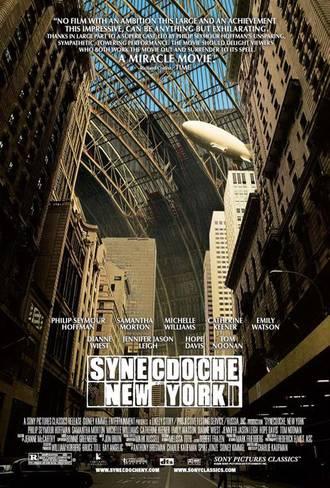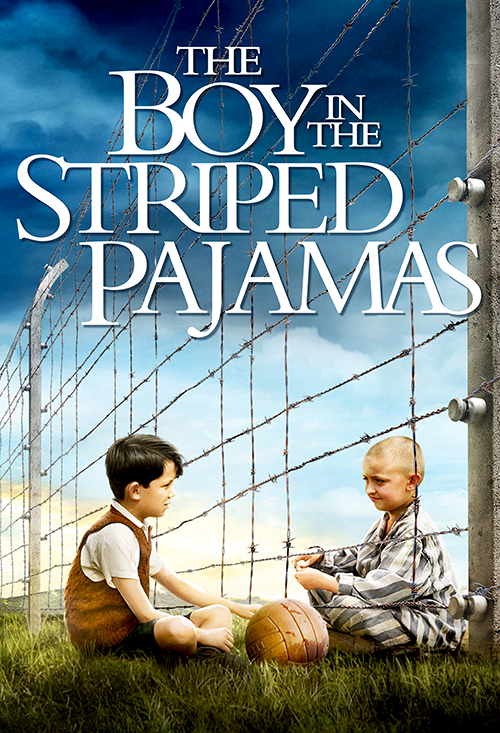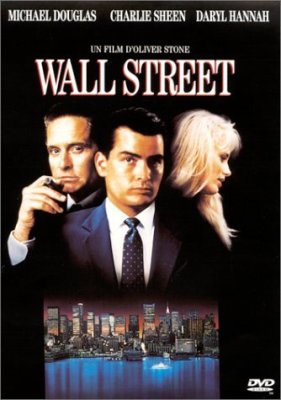Professor glum: ‘Visitor’ could
stand a few chemistry lessons
Probably no one needs a friend as much as Walter Vale does.
He is introduced to us awaiting an important guest at his home. We know this guest is important because Walter is dressed neatly in slacks and a jacket, is staring nervously out the window, is drinking a glass of red wine and is pacing. When he finally opens the front door with very cautious expectation, a nervous little polite standoff piques interest.
Who is this VIP he awaits?
A piano teacher.
One could say that Walter seriously needs to get a life. Within the first 10 minutes, we can see all of his faults. He’s not much of a piano player. He is a loner. He doesn’t care about his students. His class is lightly attended. He resists a very reasonable job assignment. He’s barely doing any work. He is completely uninspired.
But he does have something impressive: an apartment. And soon, he will have something greatly in common with two people who should have nothing in common with him: the need for a place to stay in New York.
“The Visitor” embraces the best of diversity, and one of its messages is how greatly our lives can be enhanced by people we would generally not expect to be close to. This is the enlightenment Walter receives. But it comes at a very costly price — the realization that no matter how much we wish it were otherwise, different people live in different worlds, even when they share an apartment.
It does not take long at all for Walter, or the viewer, to be sympathetic to his squatters. Their first few scenes together are extremely important, and thus this part of the filmmaking is weak and a disappointment. The friendship occurs way too easily, though the events are believable. First, based on what we know of Walter in the opening frames, there is no doubt whatsoever that this is indeed his apartment, so the only suspense in the confrontation is whether he is physically attacked. Notice that the little hallway is very dark, and so Tarek appears in first glimpses as a thug. But moments later, he and his girlfriend Zainab are graciously leaving, an instantly heartbreaking and regrettable departure even for a cold-hearted, jaded type like Walter. (Where, exactly, would they be able to get the money to pay Walter for two months of rent, especially after they presumably have paid “Ivan.”)
“The Visitor” is not the first film to depict a clash over a coveted NYC apartment. “The Goodbye Girl” cooks up a more charming and believable scenario about why two parties might have a valid claim to the same space; it’s a different dynamic when pairing a single man and available woman.
Director/writer Thomas McCarthy is realistic enough to know that if Tarek and Zainab find another place to stay the night of the encounter, they can never come back and the movie is over at the 15-minute mark. The challenge is to make the squatters initially unlikable, but give them some kind of hook so Walter can’t let them immediately leave. Then after a testy evening of arguments, a truce could be reached: the couple can stay for the rest of the week with Walter but then must move out.
The movie we got, of course, makes it much simpler and with little emotional punch on either side. Our tendency would be to hate the squatter, but we’re never really given a chance; it’s clear they ended up there through third-party chicanery. Walter quickly feels sorry for the couple, they are obviously likable people, especially Tarek, who has a permanent smile after about the first three minutes we see him, and soon they are easily friendly with each other, not having to work for any kind of connection or understanding.
Walter’s heart breaks way too easily in this situation for such an early scene. We see him completely stonewall a student with a late paper. Is the student inventing excuses, or does he have reasonable grounds for being late? Walter doesn’t care and won’t give us the opportunity to find out.
Yet he will invite complete strangers, illegal squatters and perhaps illegal immigrants, back to stay in his home shortly after meeting them for the first time.
The cause of Walter’s gloom is presented to us, weakly, in conversational form. His wife has died in the recent past, and she was a piano teacher. We never see her, and it is difficult to imagine Walter spending quality time with her, though certainly he did. We can easily guess that he is trying to learn the piano only because his wife played it so well, and if he could only learn to do the same, it would bring back those moments he must’ve cherished. But he is essentially told he is playing at the level of a child, and so he cannot continue these lessons, but maybe try again with someone else.
Walter and his late wife are not the only couple we should be wondering about. Tarek and Zainab share remarkably little chemistry. Perhaps it is too much diversity, but something about their pairing never seems quite real. “Rachel Getting Married” is an example of an interracial relationship that works well and is quite believable. In “The Visitor,” Tarek functions more as Zainab’s chaperone than lover, and she seems permanently skeptical of him. By the end, neither the viewer nor the film cares where she is or what she’s going to do next.
A neat little mystery of “The Visitor” is the source of the title. Surely it does not refer to Walter, as he would not be a visitor at his own property, but because it is a singular word, it cannot refer to Tarek and Zainab either. So it must be Mouna, Tarek’s mother ... which means Tarek is little more than a macguffin who delivers Walter to the real drama, a relationship with a woman.
Mouna does not appear wealthy, but she is very impressively dressed, and formal. This is a woman of great pride, and one of the more likable scenes is when she is approached by an Egyptian in a diner. Something else about her is very likable old-school, when she asks Zainab with raised eyebrows if she has been living with Tarek.
The problem is that Tarek is far more dramatically developed than his mother; it is fairly clear from her arrival that she is not here to seduce Walter. There is a kind of pain and fatigue in her eyes that is also seen in Evelyn Mulwray of “Chinatown.” Both know secrets that their protagonist does not, yet both cling to a very small measure of hope that he will find them the safe harbor they long for. They share a dinner with their male companions, but there is too much trauma for a real, healthy relationship.
Both Walter and Jack Nicholson’s Jake Gittes appoint themselves as protectors, but each owns a guilt complex. Walter’s seems to stem from a very dubious interpretation of Tarek’s arrest.
The two have been playing drums together at Tarek’s suggestion, then run late, as Tarek is apparently notorious for doing even though Walter seems to blame himself. It is Tarek who struggles to get through a subway turnstile, attracting police attention. If anything, having Walter standing there is the best hope Tarek’s got. In a lot of other movies — think “Frozen River” for one — Tarek would be viewed as safe because his companion is white. But the NYPD don’t care. This arrest is done so remarkably quickly and efficiently, it defies belief. A pair of plainclothes street cops bust a minority, in a place where there are many minority people, for apparent turnstile-jumping, and within seconds determine he is a candidate for deportation despite the presence of a respected American professor who can vouch for everything that has just happened.
Eventually the merits of this arrest will be shown, and while the outcome is cruel, it is actually far more impressive police work than the sloppiness shown by two more sympathetic officers in “Maria Full of Grace.”
The feeling here is that “The Visitor” is not so much trying to criticize post-9/11 immigration enforcement, but reveling in the drama. Tarek, Zainab and Mouna should be here, but then again, on another unfortunate level, they probably should not be. Tarek and Zainab know they are illegal, have no legitimate residence, and have been squatting in an apartment. Mouna, at one time in her life, carelessly failed to respond to a situation that put her family’s future at stake. “After a time,” she will say, “ you forget ... think that you really belong.” If there is such a thing as evolution of immigrants, one would say Maria Alvarez of “Maria Full of Grace” deserves it more than Mouna only because she pulled it off.
Though his arrest is overdone, it is fair that Tarek would be taken into custody until his case could run its course. Only an immigration lawyer would know for sure what to expect, but because Tarek was brought to this country as a child, has a clean record and is not on a watch list, one would think the competent attorney Shah hired by Walter would be able to prevent deportation.
None of that does any good for Walter. He exists to reveal enlightenment, but only through a double-tragedy. Walter represents all of the uninspiring, reaching-into-the-past that we do in those terrible moments when our world seems to come to an end. But he will come to learn that it is possible to move on, if we only are to open our eyes and pay a little bit of attention. Walter shares a moment in bed with Mouna, but “The Visitor” has not come for him. What they share is a permanent grief and guilt in a beautifully heartbreaking scene, in a setting that should be far more joyous.
Many critics lament that stellar character actors such as Jenkins never get roles like this. But then it happens, and you see the problem. Richard Jenkins is regarded very highly by this site for reasons that go far beyond the scope of this review. But Walter is simply too insignificant to ring an emotional register for two hours. He evokes zero passion, zero humor, and only a small amount of empathy because that is left to other characters. His makeover, noticed in his return to Connecticut, is makeover-lite, eliciting little more than tired grins.
A good benchmark for this film might be “Falling Down,” the Michael Douglas vehicle about an angry suburbanite that never quite got the credit it deserved. Douglas is at once funny, sympathetic, and to be feared. Walter is none of those. What if Walter were hilarious, the life of the party who beneath the surface leads the same lonely, miserable life we see? That story may not be as artistically pure as the one we got, but it is one that might provoke a tear or two at the end.
Fear not for Walter. He will return to Connecticut sad, angry and frustrated. But not empty. Life’s gas tank has been refilled. Walter once again has something to offer, whether it’s education, a book, or a free drum concert in the subway.
3 stars
(February 2009)
(Updated January 2018)
“The Visitor” (2008)
Richard Jenkins as Prof. Walter Vale ♦ Haaz Sleiman as Tarek Khalil ♦ Danai Gurira as Zainab ♦ Hiam Abbass as Mouna Khalil ♦ Marian Seldes as Barbara ♦ Maggie Moore as Karen ♦ Michael Cumpsty as Charles ♦ Bill McHenry as Darin ♦ Richard Kind as Jacob ♦ Tzahi Moskovitz as Zev ♦ Amir Arison as Mr. Shah ♦ Neal Lerner as Martin Revere ♦ Ramon Fernandez as Cop #1 ♦ Frank Pando as Cop #2 ♦ Waleed Zuaiter as Omar ♦ Deborah Rush as Upper East Side Woman ♦ Ashley Springer as Student ♦ Laith Nakli as Nasim ♦ Jacqueline Brogan as Waiter ♦ Walter T. Mudu as Ronald Cole ♦ Yevgeniy Dekhtyar as Slavic Man ♦ Earl Baker Jr. as Lester James ♦ Walter the Dog as Sprinkles the Dog ♦ Michael Bennett as Conference Attendee ♦ Brother Eden Douglas as Airport Security Guard ♦ Jesus A. Del Rosario Jr. as Park Drummer
Directed by: Tom McCarthy
Written by: Tom McCarthy
Producer: Michael London
Producer: Mary Jane Skalski
Executive producer: Omar Amanat
Executive producer: Chris Salvaterra
Executive producer: Jeff Skoll
Executive producer: Ricky Strauss
Executive producer: John Woldenberg
Line producer: Bergen Swanson
Line producer (Los Angeles): Patty Long
Original music: Jan A.P. Kaczmarek
Cinematography: Oliver Bokelberg
Editing: Tom McArdle
Casting: Kerry Barden ♦ Stéphane Foenkinos ♦ Billy Hopkins ♦ Paul Schnee ♦ Suzanne Crowley
Production design: John Paino
Art direction: Len X. Clayton
Set decoration: Kim L. Chapman
Costume design: Melissa Toth
Makeup and hair: Stacey Panepinto ♦ Lora Scrignoli ♦ Leah Rial ♦ Marc Boyle ♦ Kami Steele ♦ Elena Roulenko
Unit production manager: Jared Ian Goldman
Unit production manager (Los Angeles): James M. Brown
Post-production supervisor: Jonathan Ferrantelli
Stunts: Manny Siverio





